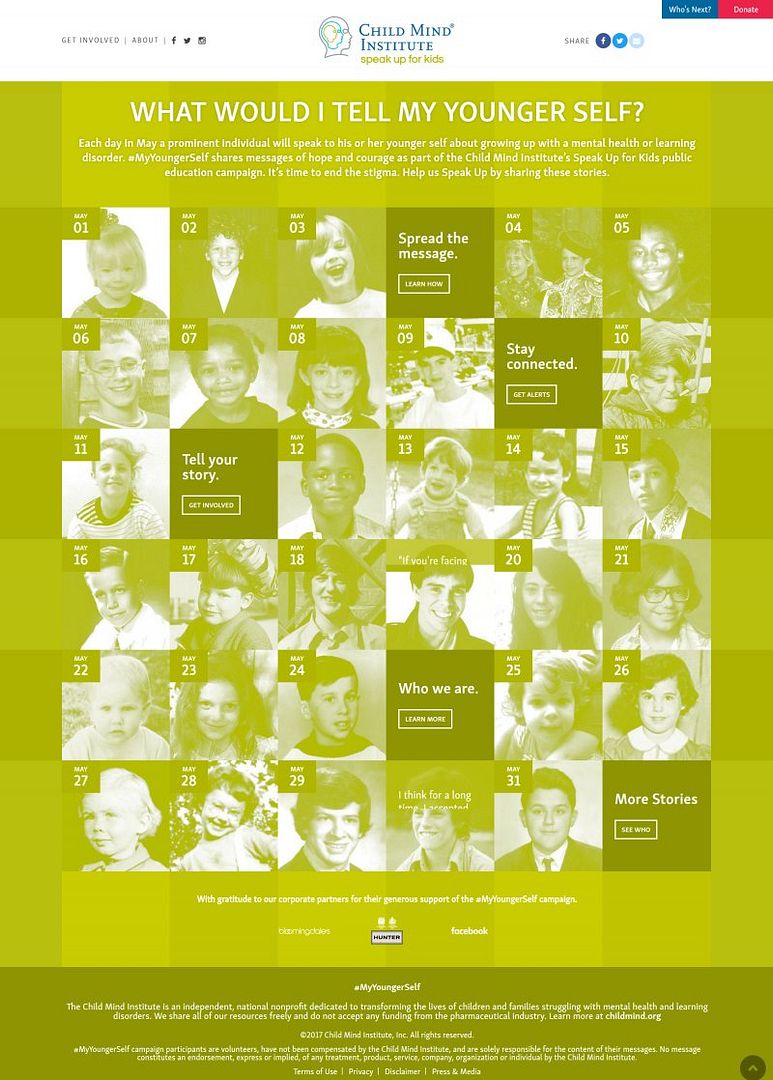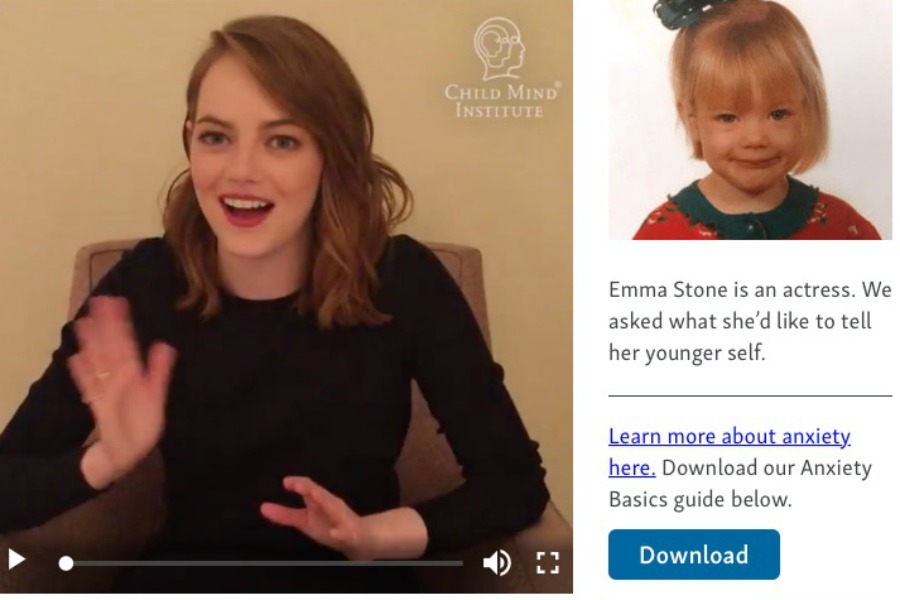Would you believe me if I told you that out of 74 million US kids, 17.1 million of them have or have had a mental health disorder? That’s a huge percentage! So huge, in fact, that the Child Mind Institute (CMI) has noted that more kids are dealing with mental health and learning issues than they are with cancer, diabetes, and AIDS combined.
Which is why CMI’s new #MyYoungerSelf campaign for kids’ mental health is so important: It seeks to raise awareness and end the stigma of mental health disorders so that kids can get the help they need.
The first step: Hearing from prominent people like Mark Ruffalo, David Cross, Lena Dunham, and many more celebrities who grew up battling these disorders themselves.
Related: Simple tips for parents to help prevent and deal with bullying.

Each day since May 1, 2017, CMI has uploaded a new homemade video of an actor, athlete, author, politician, journalist, designer, or other well-known celebrity sharing personal stories about what it was like to suffer from anxiety, depression, or panic disorders as a kid — and what they would tell their younger versions of themselves.
Related: Sleep anxiety in kids: 5 solutions for big kid sleep issues that really work
The videos are short (less than 2 minutes) but really powerful, with people like Tommy Hilfiger admitting his dyslexia made him feel too embarrassed to talk to anyone about his struggles. And Emma Stone (at top) reassuring kids that panic attacks are nothing to be ashamed of, and that the anxiety they feel is normal, and simply means they are sensitive, caring souls who feel things deeply — and that’s an amazing trait!
Truthfully, mental health and learning disorders are an overwhelming load for anyone to carry, especially a child. So a campaign like this one is pretty special — and necessary — because it helps kids understand they’re far from alone in their journey to a stronger self.
You can support the campaign and help spread the word by liking and sharing the videos at SpeakUpForKids.org on Facebook, Twitter, or Instagram — you can even make a video to your own younger self. And watch the videos with your kids too — the more they embrace positive messages about mental health disorders, the more the stigma disappears.




